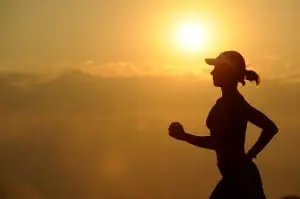 It may seem implausible that an athlete, someone who eats properly, maintains a healthy weight, doesn’t smoke, and exercises regularly, could actually develop varicose veins. Unfortunately, they can and do. At our Orlando vein center, we know that living a healthy lifestyle and being an athlete, regrettably, will have no impact on a person’s genetic makeup, or, for that matter, against gravity. Life in Florida naturally lends itself to an active lifestyle, and for athletes, it’s a great place to train.
It may seem implausible that an athlete, someone who eats properly, maintains a healthy weight, doesn’t smoke, and exercises regularly, could actually develop varicose veins. Unfortunately, they can and do. At our Orlando vein center, we know that living a healthy lifestyle and being an athlete, regrettably, will have no impact on a person’s genetic makeup, or, for that matter, against gravity. Life in Florida naturally lends itself to an active lifestyle, and for athletes, it’s a great place to train.
Athletes are just as vulnerable to their genetic composition as non-athletes. It is estimated that if one parent is diagnosed with vein disease, a person will have approximately a 30% chance of developing varicose veins and a 90% risk if both parents have been diagnosed. Sorry ladies, but female athletes will have an even greater chance of becoming symptomatic if they become pregnant or begin hormone replacement therapy.
The reality is, based on the above factors, that exercise neither causes nor prevents varicose veins from developing. One of the questions asked most frequently at Florida Vein Care is “Will my veins get worse because I exercise?” The answer might surprise you. Exercise doesn’t significantly increase, nor does it decrease, your vulnerability in forming varicose veins. Unfortunately, the aging process is the more definitive contributor, and there’s no getting away from it.
Poor blood flow in the veins result when the valves within the vein walls that are supposed to regulate circulation are no longer working properly. When we walk or run, our calf muscles tighten, which helps the circulatory process work efficiently. When the valves are not functioning correctly, blood begins to pool because there is not enough pressure to fight gravity. This causes the veins to swell and varicosities become apparent.
Athletes often comment that they feel great when they are training, but then notice, after exercising, their legs feel heavy, achy, and sometimes painful. Elevating the legs seems to help. The calf muscles are not supporting appropriate blood flow back to the heart, which is an indication that the veins are in some form of distress. When working out, the muscles demand an increase in oxygen supply and, therefore, an increased volume of blood must be rushed to the muscles. Return of this blood flow is hindered by gravity and veins that are not functioning properly. Typically, varicose veins will not impact athletic performance. However, they are not to be taken lightly.
Dr. Richard Bragg is the premier vein care specialist in Central Florida and will provide a thorough examination and discuss treatment options that are right for you. The staff at our top Orlando vein center is here to help diagnose and explain the options for treatment of varicose veins. Call for a consult today and keep maintaining your athletic lifestyle at 407-805-8989.
